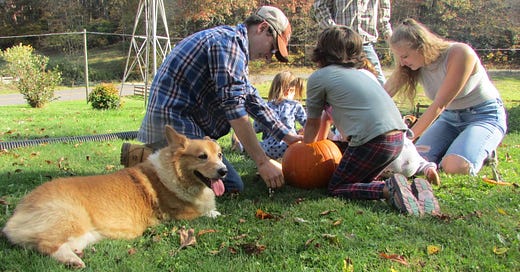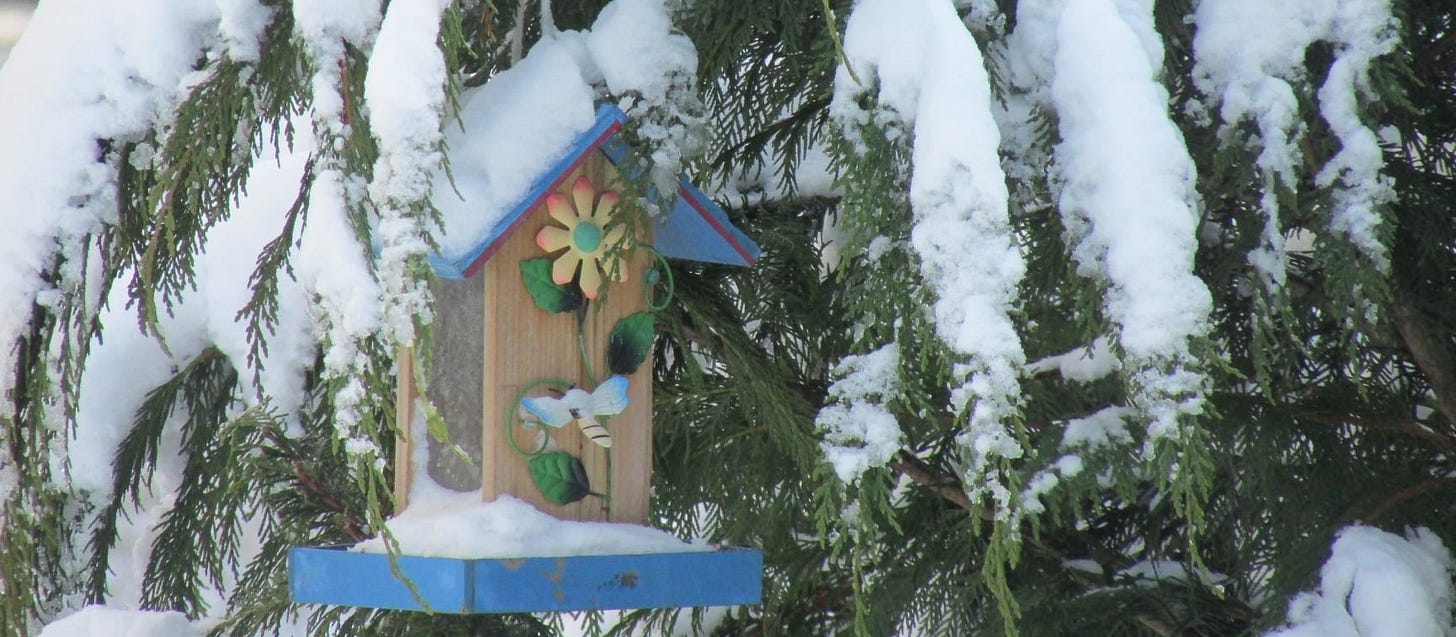Dear Reader,
Do you enjoy a good story? I’m not talking about blockbuster movies or streaming your favorite sitcom. I’m talking about old-fashioned storytelling that uses nothing more than the power of words to evoke emotions and connect individuals through shared experiences. With what seems like universal access to movies, games, and social media platforms, we often allow our lives to be ruled by constant stimulation. Old-fashioned, face-to-face communication seems almost obsolete.
I grew up in a family that knows how to tell a story. These strong influences in my life fostered in me the desire to share even the most mundane events as if they were an adventure worth re-telling. I grew up listening to grandparents, aunts, uncles, and older cousins share exciting adventures and humorous anecdotes that were simply well-worded and descriptive narratives of everyday life. Some of my earliest memories include extended family gathered together, telling elaborate stories with great guffaws of laughter and maybe some banter about how much the story had been embellished for effect.
While I may verbalize stories in the right setting, the standard is high in our family for audible storytellers and that type of entertainment is not my gift. Somewhere along the line, very early in life, I developed a propensity for putting stories down on paper, and that has become my contribution to my family’s gift of storytelling.
Stories, however, are not simply a mode of entertainment. Stories help us connect with our feelings and when we follow a story through, from introduction to conclusion, our brains reward us with a dose of dopamine. I learned this while reading Brene’ Brown’s most recent book, RISING STRONG. In the book she writes, “Robert Burton, a neurologist, and novelist, explains that our brains reward us with dopamine when we recognize and complete patterns. Stories are patterns. The brain recognizes the familiar beginning-middle-end structures of a story and rewards us for clearing up the ambiguity.”
Brown goes on to say, “You know that wonderful sensation we experience when we connect the dots or something finally makes sense for the first time? Burton uses that as an example of how we might experience our brain’s pattern-recognition reward. “
So, there you have it from someone with much more knowledge than myself! Stories are important for mental health and well-being and they provide a wonderful platform for us to connect with others through the sharing of our lives, our thoughts, and our feelings.
The holidays are fast approaching and many of us will be connecting with friends and family during that time. It’s a perfect opportunity to set aside distractions and focus on those we love. I can’t think of a better way to spend time together than by sharing stories from our past and creating new ones for future storytelling.
All my love,
Tammy
An Alaskan Trapper and an Unconventional Friendship
Perhaps it was fate that led me to the charmingly cute cabin nestled among the birch trees. It had been sitting void of occupants for quite some time. Heated only with wood and having no running water, the house wasn’t exactly prime rental property, even by local standards. The owner told me if I cleaned out the trash and disposed of the previous renter’s deserted possessions, I could live there for a minimal monthly fee. I viewed this as an adventure and looked forward to taking up residence in my new home. There was, however, one stipulation. I would have to share the grounds with Bruce, an intentionally homeless man, who lived in the garage on a part-time basis.
When I first toured the cabin, the door to the garage was closed and Bruce wasn't anywhere in sight. I was told that he came into town occasionally before he went back into the Alaskan wilderness where he spent most of his time. “It shouldn’t be that hard to share the garage space with Bruce,” I thought.
I didn’t officially meet Bruce for quite a while and there were no immediate introductions when he did appear. After being on his trapline, he would drive up in his old, beater of a truck and start a fire in the wood stove to heat the garage that would be his home for a few days. I would observe this ritual through the cabin window and wonder "What kind of person lives their life on a trapline? Why would anyone choose to sleep in their truck inside a garage when it’s 40 below zero outdoors?"
I was intrigued by the man and eventually, I started offering him cookies. I guess, in a sense, I was trying to bate the wild man living in my garage and convince him to converse with me. Bruce couldn't resist the cookies. It wasn't long before he was knocking at my door. Conversation soon began to flow between us.
Bruce and I couldn't have been more different. Despite my cabin being somewhat primitive, I insisted on order and cleanliness and was almost compulsive in my efforts. The first few times Bruce showed up at my door holding a bag of popcorn in his filthy hands and asking me to put it in the microwave for him, I wasn't sure what to do. It was challenging to welcome someone who smelled and looked the way he did. It wasn't long, however, until he won me over with his gift of storytelling. He would sometimes entertain me for an hour or more with tales of the trapline and the great Alaskan wilderness. Occasionally, he would share a few stories of when he was a boy living in Wisconsin on a dairy. He especially enjoyed telling how he offended people by the way he looked and smelled. He recognized their discomfort, and rather than try to minimize it, chose to accentuate it with his brand of humor. On one occasion, he took himself to the meat department of the local grocery store and made quite the show of deeply inhaling through his nostrils and then proclaiming in a loud voice, "There must be something wrong with this meat! It smells horrible!" Customers quickly dispersed upon smelling the stench coming from Bruce and hearing his declaration of rotting meat. I laughed genuinely at his glee as he completed his story with his head thrown back, and tears of laughter streaming down his face. As his laughter subsided, I noticed the filthy snow melting off his dirty boots and how it puddled and then ran across my clean floors. Watching me in his characteristic way, he grinned and reached for another handful of homemade, chocolate chip cookies before exiting with barely a goodbye.
For some reason, I thought of Bruce recently when I put out fresh suet for the birds. Bruce loved to feed the birds, using scraps from his traplines. I will never forget my horror the first time I saw raw flesh and organs of wildlife dangling from the birch trees in my front yard. It was almost enough to make me move from my tiny cabin and try to forget that I had ever met him. Bruce just laughed at my horror and continued to feed the birds. Years later, I realize that my unconventional friendship with Bruce taught me that some of life’s greatest gifts arrive in very unlikely packaging. Though we are tempted to toss aside these awkwardly wrapped and sometimes unwelcomed “gifts”, an enlightening and rewarding experience often lies hidden inside.
(This story originally appeared on my blog A Couple of Farmers and has been edited and recycled for this newsletter.)
Quotes
“Stories have to be told or they die, and when they die, we can't remember who we are or why we're here.”
― Sue Monk Kidd, The Secret Life of Bees
“We tell ourselves stories in order to live.”
― Joan Didion, The White Album
“Listen, and you will realize that we are made not from cells or atoms. We are made from stories.”
― Mia Couto
Writing Updates and Speaking Engagements
Self Reliance Magazine 2023 Winter Edition: How to Choose a Dairy Cow for the Homestead
Exploring the Personal Narrative Essay: Interactive Discussion and Workshop with Freelance Writer and Blogger, Tammy Cupp: December 1st, 11-12:30 pm at Blue Ridge Community College, Location Houff G186 in Weyers Cave, VA
For more information on these articles or events, feel free to email me at tholbrookcupp@yahoo.com
Did you know that authors and writers need readers and cannot be successful without them?
Beyond needing people to read what they write, authors also need help promoting their work. Even when authors receive a contract for a book from a traditional publisher, much of the marketing of that book is still left to the individual. Marketing takes a lot of time that could otherwise be spent creating new content. If you have a favorite book author, leaving positive feedback on public forums like Goodreads is very helpful.
If there is a freelance writer you particularly enjoy, you can reach out to the magazine(s) to which they contribute. Let the editors know that you are partial to that individual’s work. It’s a tough market with a lot of competition and it helps when editors and publishers hear from the public regarding the authors and writers they prefer.
Sharing stories, books, and articles that you enjoy with others also helps writers be successful. Share a free story on your social media feeds or through email. Buy books and give them as gifts to friends and family. Discuss your favorite books and articles with others. Talk about what you read!
Every reader makes a difference in the life of a writer.
Why not take a few minutes in the days ahead and promote a writer that you enjoy? I know they will greatly appreciate your support.





